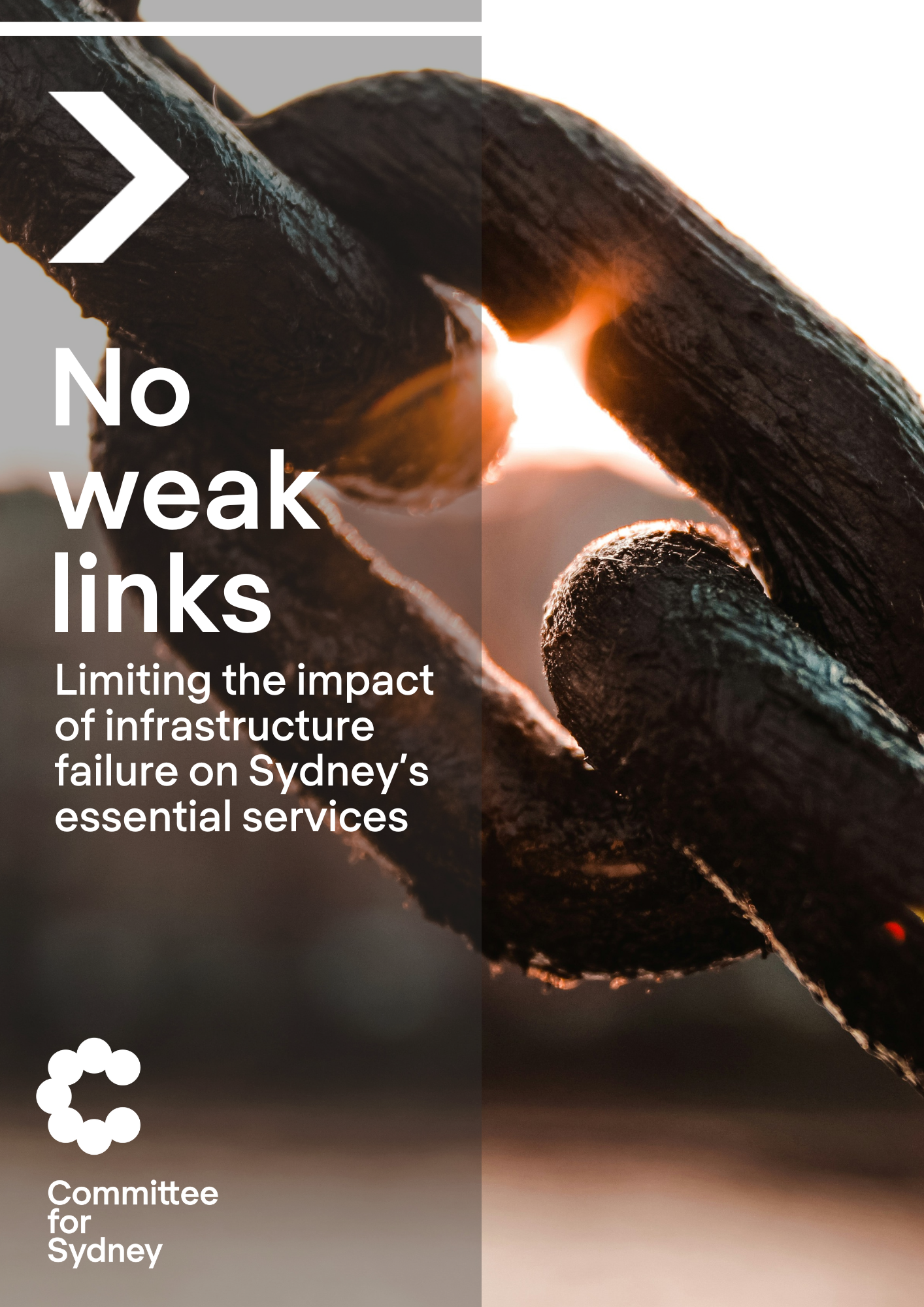All cities rely on an interdependent network of infrastructure, assets and essential services.
Whether due to climate related hazard events, cyber-attacks, rapid urban growth or ageing assets, parts of our complex urban infrastructure systems have the potential to fail.
Power failure is the most significant driver of cross-sectoral infrastructure failure, followed by transportation, energy, and the telecommunication sector. Interdependency between infrastructure sectors means that shocks or disruptions can flow across services and supply chains, posing major risks to business and community continuity.
But we are only as strong as our weakest links.
This report draws on workshops and subsequent research with key infrastructure leaders and service providers across Greater Sydney to identify five core insights on how to enable infrastructure for resilience:
- Decisions about infrastructure assets and systems need to respond to the most likely climate scenarios and most extreme climate scenarios.
- Post-disaster investment should build on lived experience and betterment opportunities to improve business and community continuity.
- Existing critical infrastructure legislation (State and Federal) enables sharing of protected data, yet can also restrict sectors to a narrow focus on their own assets, while limiting recognition of the role of social infrastructure in enabling recovery and resilience.
- Collaborative governance is needed to prepare for future disruption through acknowledgement of 3rd party risks and coordinated investment between infrastructure sectors.
- There is limited formal recognition of the essential role that blue-green infrastructure (trees, plants, parks and waterbodies) in Sydney play in risk management and community continuity, while First nations knowledge around bushfire and drought management is under-utilised.
Read the full report for more.
